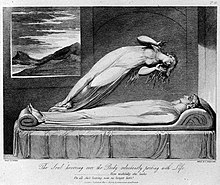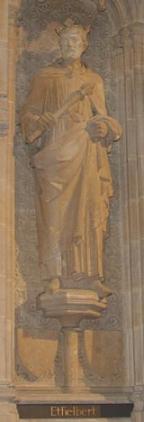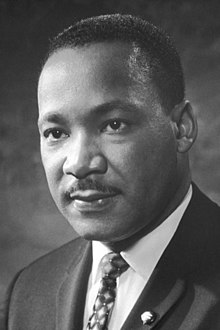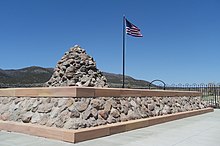Portal:Religion
The Religion Portal
Religion is a range of social-cultural systems, including designated behaviors and practices, morals, beliefs, worldviews, texts, sanctified places, prophecies, ethics, or organizations, that generally relate humanity to supernatural, transcendental, and spiritual elements—although there is no scholarly consensus over what precisely constitutes a religion. Different religions may or may not contain various elements ranging from the divine, sacredness, faith, and a supernatural being or beings. (Full article...)
 Vital article
Vital article

The soul, regarded as the immaterial self which most ordinary people initially believe in, is often discussed in the context of religion, theology, psychology and philosophy. According to Stewart Goetz, anthropologists and psychologists have found that ordinary humans interculturally have distinguished between souls and bodies. (Full article...)
 Did you know (auto-generated)
Did you know (auto-generated)
- ... that across his thirty-six collections, fashion designer Alexander McQueen contemplated religion, told fairy tales, and criticized the fashion industry?
- ... that Gherardo Gambelli, the incoming archbishop of Florence, served as a prison chaplain in Chad for over a decade?
- ... that Catherine de Parthenay, a 16th-century Huguenot leader, was a member of "a highly successful network of information" during the French Wars of Religion?
- ... that the nonconformist minister Ichabod Chauncey was banished from England under the Religion Act 1592 and spent two years in exile in Holland where he published a defence of his actions?
- ... that the author of the comic book Timeless Voyage was the leader of a UFO religion?
- ... that a religious community is a group of people who practice the same religion, but do not have to live together?
Æthelberht (/ˈæθəlbərt/; also Æthelbert, Aethelberht, Aethelbert or Ethelbert; Old English: Æðelberht [ˈæðelberˠxt]; c. 550 – 24 February 616) was King of Kent from about 589 until his death. The eighth-century monk Bede, in his Ecclesiastical History of the English People, lists him as the third king to hold imperium over other Anglo-Saxon kingdoms. In the late ninth century Anglo-Saxon Chronicle, he is referred to as a bretwalda, or "Britain-ruler". He was the first English king to convert to Christianity. (Full article...)


































































